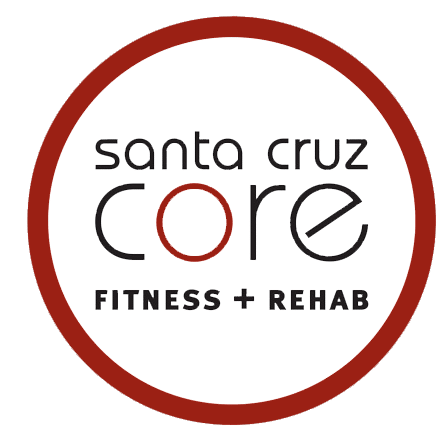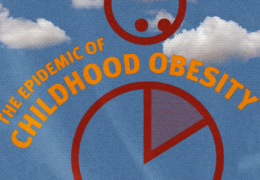Nutrition is an evolving field of the healthcare industry that is essential to combat the growing rates of non-communal diseases (2).
 Non-communal diseases are those which stem from poor dietary choices and a sedentary lifestyle, also known as chronic conditions. Examples of such conditions include cardiovascular disease (CVD), diabetes, cancer, and obesity. Not surprisingly, these diseases are responsible for the mass majority of deaths in the U.S. and around the world. With heart disease and cancer being at the top of the list with the highest mortality rates (1).
Non-communal diseases are those which stem from poor dietary choices and a sedentary lifestyle, also known as chronic conditions. Examples of such conditions include cardiovascular disease (CVD), diabetes, cancer, and obesity. Not surprisingly, these diseases are responsible for the mass majority of deaths in the U.S. and around the world. With heart disease and cancer being at the top of the list with the highest mortality rates (1).
Due to the importance of this field, there is an increasing demand for professionals with an advanced degree in the field of nutrition. The academic world, however, is still in the process of refining the advanced specialties in this field. According to Dietetics and Integrative Medicine: A Curriculum Development Model by the University of Kansas Medical Center, nutrition training in medical schools is rather poor and sometimes missing altogether.
This only further highlights the need for specialists in this field which Nutrition Consultants (NCs) and Registered Dietitians (RDs) are a part of. Both NCs and RDs usually require at least a bachelor’s degree in a field of science before pursuing to further their studies.
A Nutrition Consultant:
Most nutrition consultants have gone through a certification program that specializes in nutrition. NC students usually have at least a bachelor degree in a field of science, but this is not always required by the program. Nutrition programs of this kind can range from a couple of weeks, months, and up to a couple of years but are usually no longer than that.
Depending on the institution offering the NC program, an individual will receive nutrition training. Nutrition consultants can also gain greater knowledge by continuing education in their field. Any professional in a field of science, especially healthcare, is expected to remain academically active. All fields of science are constantly evolving and an individual who practices nutrition must keep up with upcoming research.
A Registered Dietitian:
 The Registered Dietitian (RD) degree is an advanced specialty overlooked by the Association of Nutrition and Dietetics (AND). RDs must go through an accredited nutrition program (graduate or undergraduate) approved by the AND. These programs satisfy most if not all of the AND requirements needed to take the registered dietitian exam and become licensed. Additionally, RD students must complete a number of internship hours. These hours must be in a nutrition-related setting to qualify to take the RD exam.
The Registered Dietitian (RD) degree is an advanced specialty overlooked by the Association of Nutrition and Dietetics (AND). RDs must go through an accredited nutrition program (graduate or undergraduate) approved by the AND. These programs satisfy most if not all of the AND requirements needed to take the registered dietitian exam and become licensed. Additionally, RD students must complete a number of internship hours. These hours must be in a nutrition-related setting to qualify to take the RD exam.
Functional and Integrative Medicine Approach:
On top of receiving a degree or certificate in the field of nutrition, individuals trained in functional and integrative medicine can bring a lot more to the practice. Functional integrative nutrition combines many aspects of wellness and systems biology into its holistic practice.
Wellness is the state of being in good health. Diet and a diagnosis of systems alone cannot determine one’s wellness. This osteopathic concept refers to a state that can only be achieved through a healthy balance between mind, body, and spirit (2)(3). When these three concepts of health are in sync, it maximizes the body’s self-regulating and self-healing potentials. When psychology is integrated into medicine, for example, it incorporates the individual’s state of mind into the healing process. The individual is able to reach a higher level of wellness.
R. Mitchell Hiserote, D.O. and associate clinical professor at Touro University of Osteopathic Medicine describes the concept of spirit as “…not religion,(but) your ability to connect with something greater than yourself.” He goes on to explain that in many cases religion does provide many individuals with that very much needed connection while others find it elsewhere. For instance, some may find it hiking or climbing a mountain. The aspect of spirit is unique to holistic healing and thinking. Many times, it helps individuals find that “something” that makes them feel like they belong.
Santa Cruz CORE:
Misa Lawson has over 30 years of experience in nutrition therapy and is a Registered Dietitian Nutritionist and a Certified Diabetes Educator. Misa practices a specific approach to nutrition called Functional Integrative Nutrition that looks at four elements of an individual: diet, genetics, lifestyle, and environment. This approach looks at the underlying causes of an ailment or disease and can help with autoimmunity, chronic fatigue, food addictions, food sensitivities, irritable bowels and so much more.
Get a Comprehensive Nutritional Profile and Report of Findings for $79* — Call 831.425.9500 to book!

First-time nutrition clients only*
References:
Kochanek, Kenneth D, et al. “Mortality in the United States, 2016.” Centers for Disease Control and Prevention, National Center for Health Statistics, Dec. 2017, www.cdc.gov/nchs/products/databriefs/db293.htm.
Noland, Diana. Dietetics and Integrative Medicine: Curriculum Development Model. University of Kansas Medical Center, 2016.
Hiserote, R M. “Introduction to Osteopathic Medicine: R. Mitchell Hiserote, D.O. (2014).” YouTube, UCDPreHealth, 9 Dec. 2014, www.youtube.com/watch?v=_qyb1j0jbzc.









